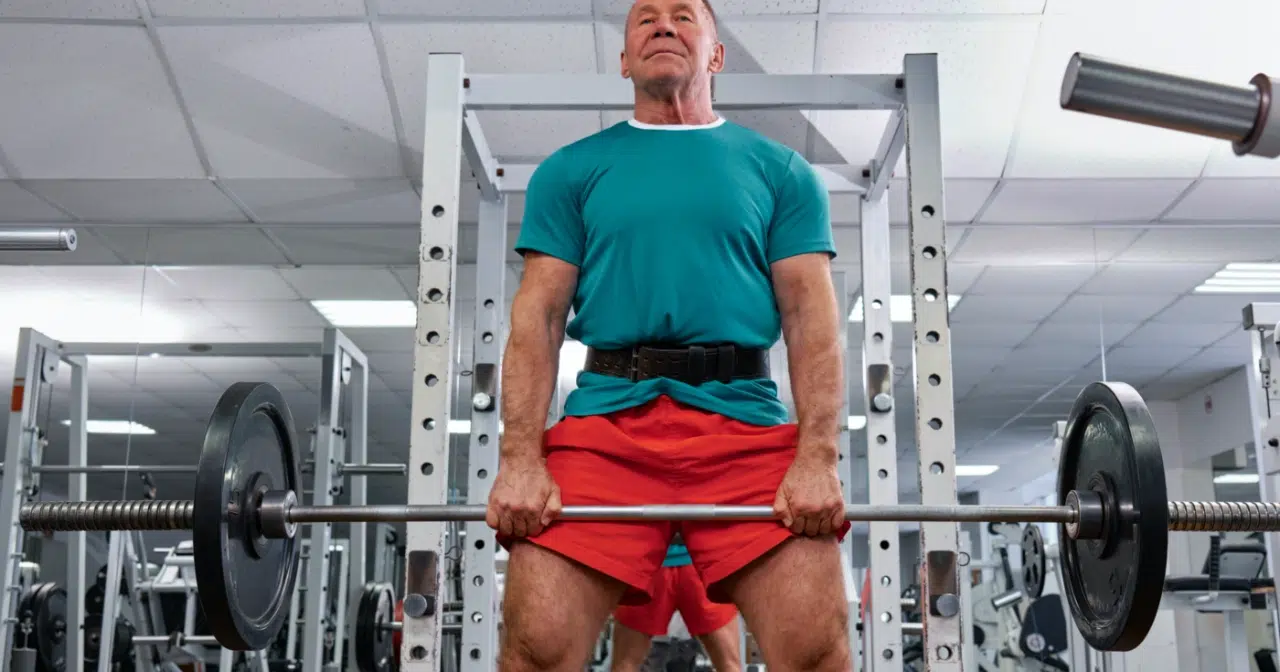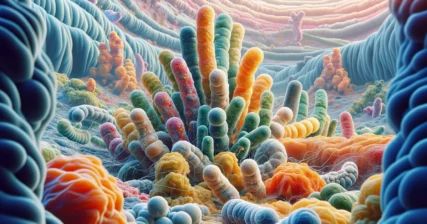Listen on: Apple Podcasts | Spotify
You know it’s coming — that familiar pre-workout tingle. It creeps up your neck, sweeps across your face, and dances down your arms. Some people love it, and some don’t. But have you ever stopped to wonder what causes that curious sensation? Is it a rash? A negative side effect? Do you have an allergy to pre-workout supplements? Or is there something beneficial about that pre-workout tingle or itch you feel a few minutes after drinking it?
In this article, I’ll explain what makes you feel flushed and itchy or what gives you the tingles. However, I won’t get into whether you should regularly use pre-workout or energy drinks. I did cover whether teens should use pre-workout supplements in the past, but I’ll get into the pros and cons of pre-workout supplements at another time.
Vasodilation and Nitric Oxide: The Cause of the Pre-Workout Tingle
Vasodilation, dilation of your blood vessels, causes the pre-workout tingle. As your blood vessels widen, they allow more blood, oxygen, and nutrients to reach your muscles. The relaxation of blood vessels is a normal and healthy response. You dilate and constrict your blood vessels to regulate blood flow, ensuring that every part of your body, from your brain to your muscles, gets the oxygen and nutrients it needs.
Vasodilation plays a significant role during physical activity. When you exercise, your muscles need more oxygen to produce energy.
At the heart of this process is a molecule called nitric oxide. Nitric oxide signals the smooth muscle in your blood vessels to relax, causing them to expand.1Förstermann, U., & Sessa, W. C. (2012). Nitric oxide synthases: regulation and function. European heart journal, 33(7), 829-837. Nitric oxide also signals the blood vessels in your muscles to expand, increasing blood flow and allowing more oxygen to reach your working muscles.
Various factors can reduce nitric oxide production, including aging, poor diet, lack of physical activity, and certain health conditions like diabetes and heart disease.
When nitric oxide levels decrease, it can lead to a condition known as endothelial dysfunction.2Toda, N., & Okamura, T. (2013). The pharmacology of nitric oxide in the peripheral nervous system of blood vessels. Pharmacological reviews, 55(2), 271-324. The endothelium is the inner lining of your blood vessels. It plays a critical role in maintaining vascular health.
Endothelial dysfunction leads to vasoconstriction — the narrowing of blood vessels. This reduces blood flow, leading to high blood pressure and other cardiovascular issues.3Lundberg, J. O., Weitzberg, E., & Gladwin, M. T. (2008). The nitrate–nitrite–nitric oxide pathway in physiology and therapeutics. Nature Reviews Drug Discovery, 7(2), 156-167. So, even though vasodilators have become extremely popular in pre-workout supplements, they also play an essential role in maintaining cardiovascular health for those who’ve developed heart disease.
Compounds That Trigger the Pre-Workout Tingle
Today, beta-alanine is the most popular vasodilator for pre-workout supplements, but other vasodilators exist. I’ll briefly explain each.
Beta-Alanine
Beta-alanine is a non-essential amino acid that, when ingested, combines with histidine to form carnosine. Carnosine acts as a buffer, delaying the onset of muscle fatigue and enhancing your performance. However, when beta-alanine binds to nerve receptors, it can cause a sensation known as paresthesia (par·es·the·si·a) — the infamous pre-workout tingle or a feeling like you’re getting poked with pins and needles.
A systematic review published in the journal Amino Acids examined 15 studies on beta-alanine. The authors found that beta-alanine supplementation improved performance in high-intensity exercises lasting 1-4 minutes by 2.85%.4Hobson, R. M., Saunders, B., Ball, G., Harris, R. C., & Sale, C. (2012). Effects of β-alanine supplementation on exercise performance: a meta-analysis. Amino acids, 43(1), 25-37. This includes activities such as sprinting and weightlifting.
Moreover, a meta-analysis of 40 studies published in the British Journal of Sports Medicine found that beta-alanine improved exercise performance in bouts lasting 60-240 seconds, with the most significant improvements seen in exercise lasting 60-120 seconds.5Saunders, B., Elliott-Sale, K., Artioli, G. G., Swinton, P. A., Dolan, E., Roschel, H., … & Gualano, B. (2017). β-alanine supplementation to improve exercise capacity and performance: a systematic review and meta-analysis. British Journal of Sports Medicine, 51(8), 658-669.
Beta-alanine also delays neuromuscular fatigue, particularly in elderly populations. The Journal of the International Society of Sports Nutrition found that beta-alanine supplementation improved submaximal endurance performance in elderly people, suggesting its potential role in promoting healthy aging.6Trexler, E.T., Smith-Ryan, A.E., Stout, J.R. et al. International society of sports nutrition position stand: Beta-Alanine. J Int Soc Sports Nutr 12, 30 (2015). https://doi.org/10.1186/s12970-015-0090-y
These findings underscore the potential of beta-alanine as an ergogenic aid for improving high-intensity exercise performance and delaying fatigue.
Niacin
Niacin, or vitamin B3, is another common ingredient in pre-workout supplements known to cause a flushing sensation (known as a “niacin flush”) or tingle. This effect is due to its vasodilating properties, which increase blood flow to the skin’s surface.7Benyo, Z., Ruisanchez, É., & Leszl-Igaz, I. (2005). The kynurenine-nicotinic acid pathway in endothelial dysfunction: A novel mechanism of cardiovascular disease. Expert Opinion on Therapeutic Targets, 9(4), 745–754. This is often perceived as a warm, tingling sensation accompanied by redness. In addition to its vasodilating effects, niacin also plays a role in converting food into energy and is essential for nervous system function.8Mayo Clinic. (2021). Niacin (Vitamin B3, nicotinic acid), Niacinamide: Evidence. Retrieved from https://www.mayoclinic.org/drugs-supplements-niacin/art-20364984
Doctors often prescribe niacin to treat high cholesterol. Niacin has been found to lower “bad” LDL cholesterol and triglycerides while boosting “good” HDL cholesterol, making it beneficial for heart health.
In addition to its cardiovascular benefits, niacin can be prescribed to help manage pellagra, a disease caused by niacin deficiency. Symptoms of pellagra include skin inflammation, diarrhea, dementia, and sores in the mouth.9Oldham, M. A., & Ivkovic, A. (2012). Pellagrous encephalopathy presenting as alcohol withdrawal delirium: a case series and literature review. Addictive behaviors, 37(7), 828-831.
It’s also worth noting that niacin has been studied for its potential role in preventing Alzheimer’s disease, cataracts, osteoarthritis, and type 1 diabetes, though more research is needed in these areas.
Beetroot
Beetroot is another popular vasodilator. It contains high levels of nitrates, which get converted to nitric oxide after you consume them.
Research shows that beetroot supplementation can improve endurance performance. A meta-analysis of 23 studies published in the Journal of the International Society of Sports Nutrition found that beetroot supplementation significantly improved time trial performance in cyclists and runners.10Gao, C., Gupta, S., Adli, T. et al. The effects of dietary nitrate supplementation on endurance exercise performance and cardiorespiratory measures in healthy adults: a systematic review and meta-analysis. J Int Soc Sports Nutr 18, 55 (2021). https://doi.org/10.1186/s12970-021-00450-4 In addition, beetroot reduces muscle damage from intense, eccentric training.11Clifford, Tom et al. “The effects of beetroot juice supplementation on indices of muscle damage following eccentric exercise.” European journal of applied physiology vol. 116,2 (2016): 353-62. doi:10.1007/s00421-015-3290-x.
Beyond its performance-enhancing effects, beetroot also has health benefits. A review published in Nutrients highlighted the potential of beetroot in managing cardiovascular health. The authors noted that beetroot’s high nitrate content could lower blood pressure, reduce inflammation, and improve endothelial function, which is the ability of the blood vessels to dilate.12Domínguez, R., Cuenca, E., Maté-Muñoz, J. L., García-Fernández, P., Serra-Paya, N., Estevan, M. C. L., … & Garnacho-Castaño, M. V. (2017). Effects of beetroot juice supplementation on cardiorespiratory endurance in athletes. A systematic review. Nutrients, 9(1), 43.
These findings suggest that beetroot can enhance exercise performance and support cardiovascular health, whether consumed as a whole food or in supplement form.
Other Vasodilators
Other compounds have been shown to have vasodilating effects as well, such as:
- L-arginine and L-citrulline: These are amino acids that the body can convert into nitric oxide. They are often included in pre-workout supplements for their potential to increase blood flow.13Álvares TS, Meirelles CM, Bhambhani YN, Paschoalin VM, Gomes PS. L-Arginine as a potential ergogenic aid in healthy subjects. Sports Medicine (Auckland, N.Z.). 2011 Mar;41(3):233-248. DOI: 10.2165/11538590-000000000-00000. PMID: 21395365.
- Caffeine: While not a vasodilator in itself, caffeine can enhance the effects of other vasodilating compounds. It can also increase adrenaline levels, increasing blood flow to the muscles.14Gonzalez, A. M., & Nuttall, F. Q. (2011). Effects of oral caffeine on postprandial glycaemia, thermogenesis and energy expenditure in type 2 diabetes. Diabetes, Obesity and Metabolism, 13(2), 215–221.
Is the Pre-Workout Tingle Safe?
The short answer is yes. The tingling sensation is a harmless side effect of taking beta-alanine, niacin, beetroot, or other vasodilators. However, it’s important to remember that supplements are not a one-size-fits-all solution. Each person is unique, and your body’s response to any supplement will depend on a number of factors, including your age, sex, fitness level, and overall health. What works for you might not work for someone else.
Also, even though the vasodilators are safe, other compounds in energy drinks might not be good for you. Some contain extreme doses of caffeine, which could leave you feeling jittery in the short-term, or cause you to crash later in the day. Many also contain artificial sweeteners and flavors, dyes, and herbs that cause you to have a negative reaction.
And, many can cause dependence. You might find that you can’t get through a workout without using them. That’s why I encourage clients to use them only for competitions or on days when they really need a pick-me-up.
Getting back to the vasodilators, they are totally safe. That’s why they’re often used with patients who have heart disease.
How Can You Minimize the Pre-Workout Tingle?
If the tingle bothers you, there are a few things you can do to minimize it.
One strategy is to divide your dosage throughout the day, rather than taking it all at once. This can help reduce the concentration of it in your blood and decrease the likelihood of experiencing paresthesia. Understandably, this might reduce the benefits of using it as a “pre-workout.”
Another option is to take a pre-workout that does not contain niacin, beetroot, or beta-alanine, and then taking an extended-release beta-alanine or niacin instead.
I’ve found that for most people, once they understand what the pre-workout tingle is all about, they don’t mind experiencing the reaction. However, if they don’t know it’s coming, they often fear they’re having a negative reaction and get scared away from using the supplement.
Practical Summary
The pre-workout tingle is a curious sensation, but it’s more than just a side effect. It’s proof that your blood vessels are dilating, allowing for more blood flow and the opportunity for a more intense training session.
As with all supplements, though, a pre-workout won’t make up for a poorly designed strength training session, a lousy diet, or a lack of sleep. If you’re serious about your health and fitness, you’ll get The 3 Pillars of VIGOR down before you start investing in pre-workout supplements.



